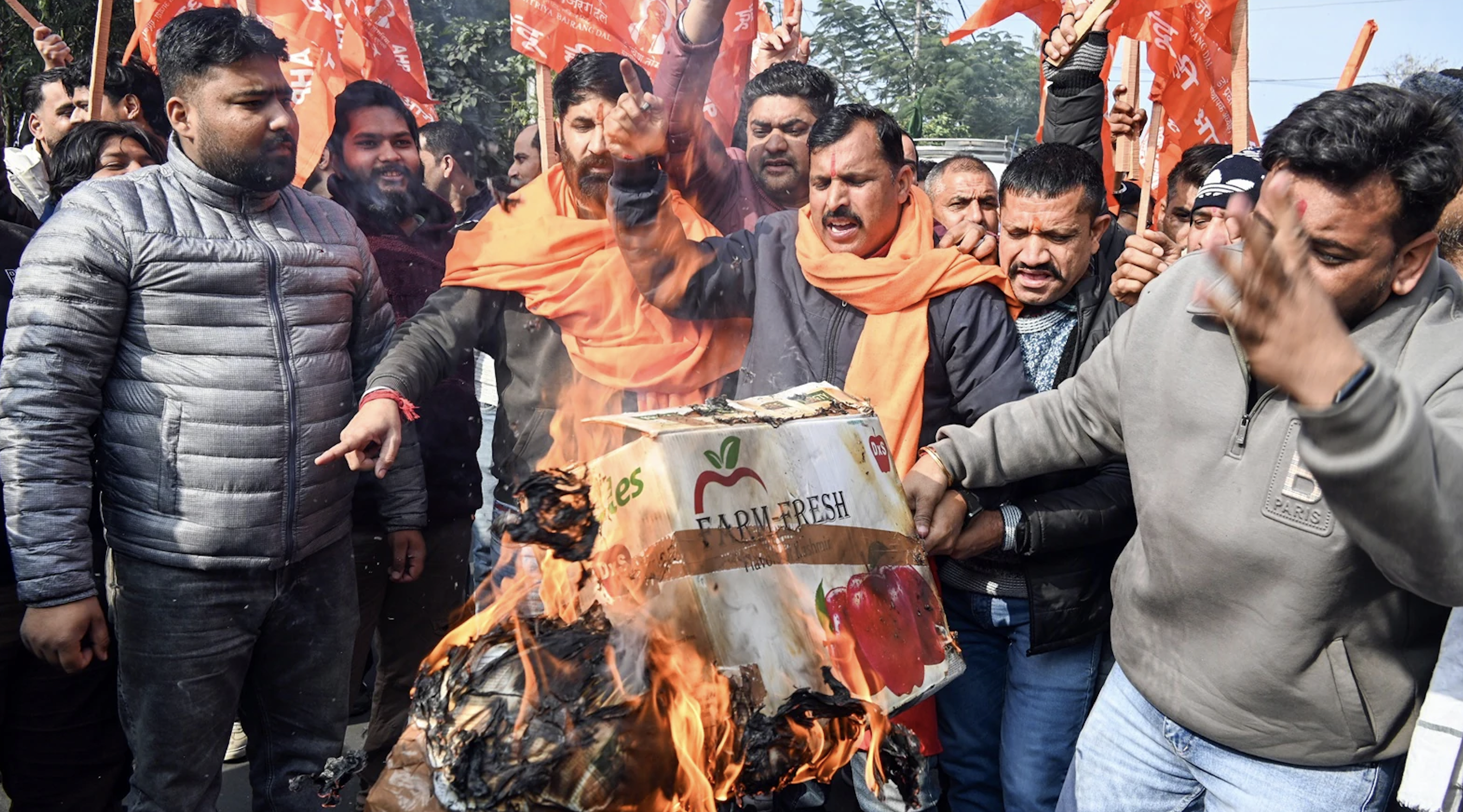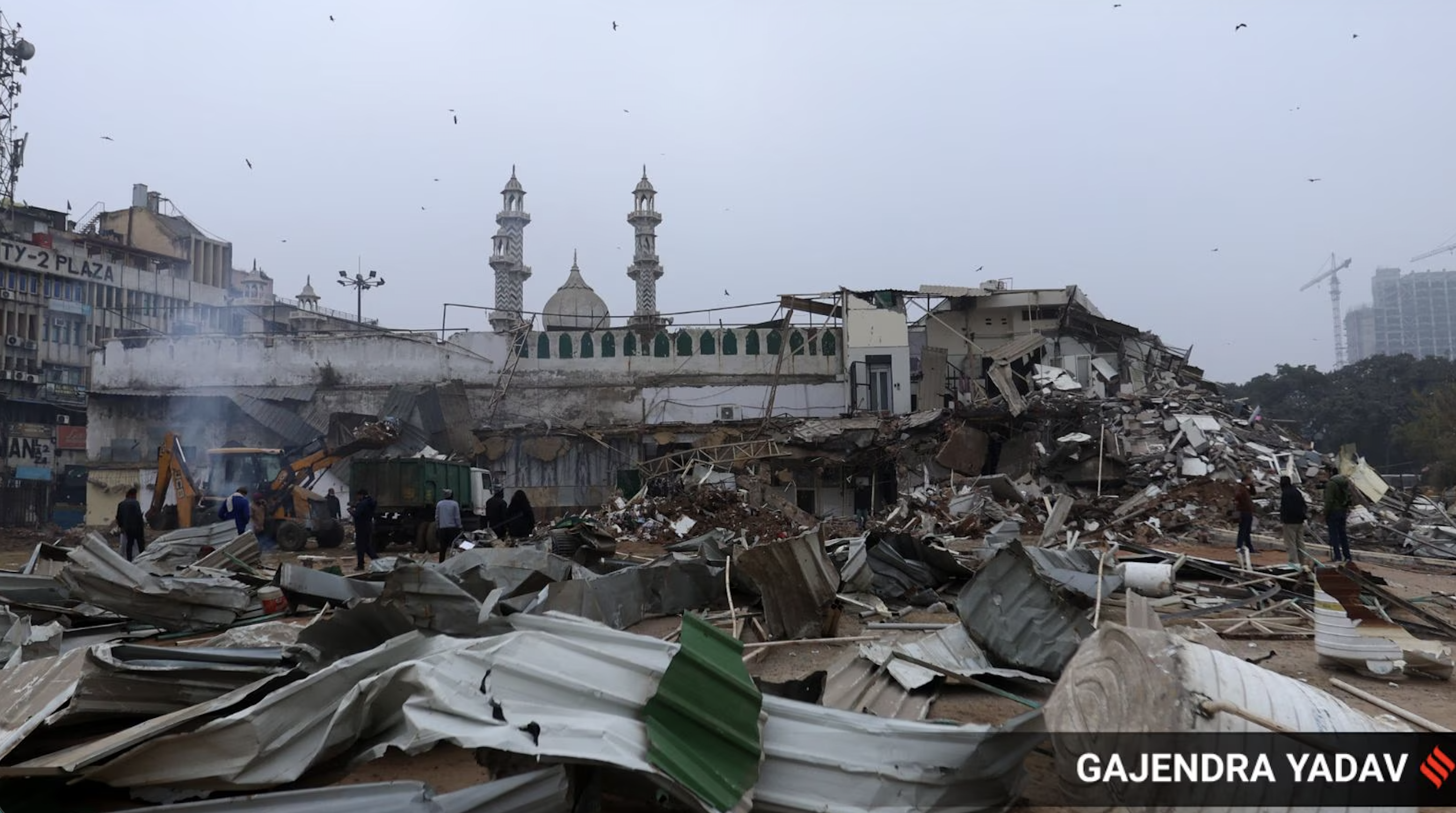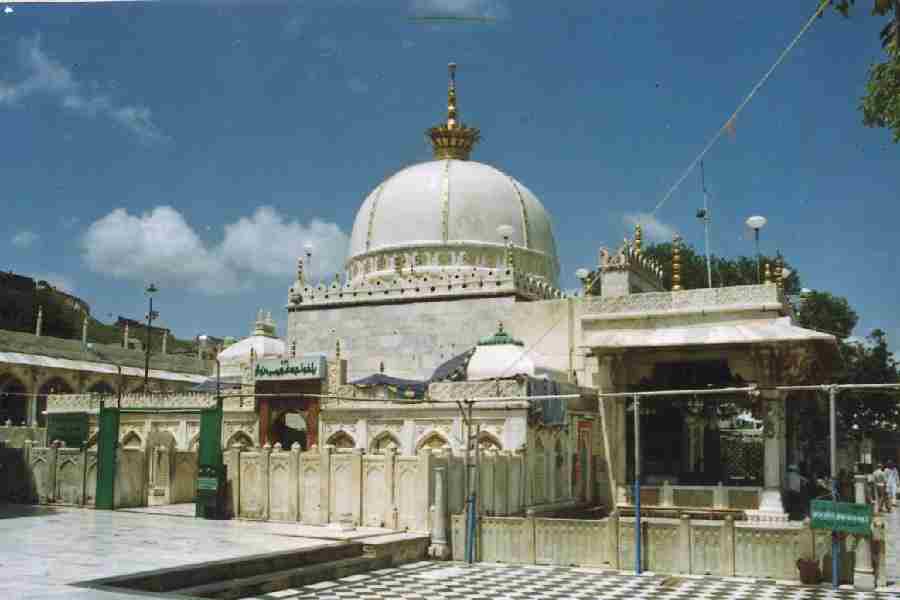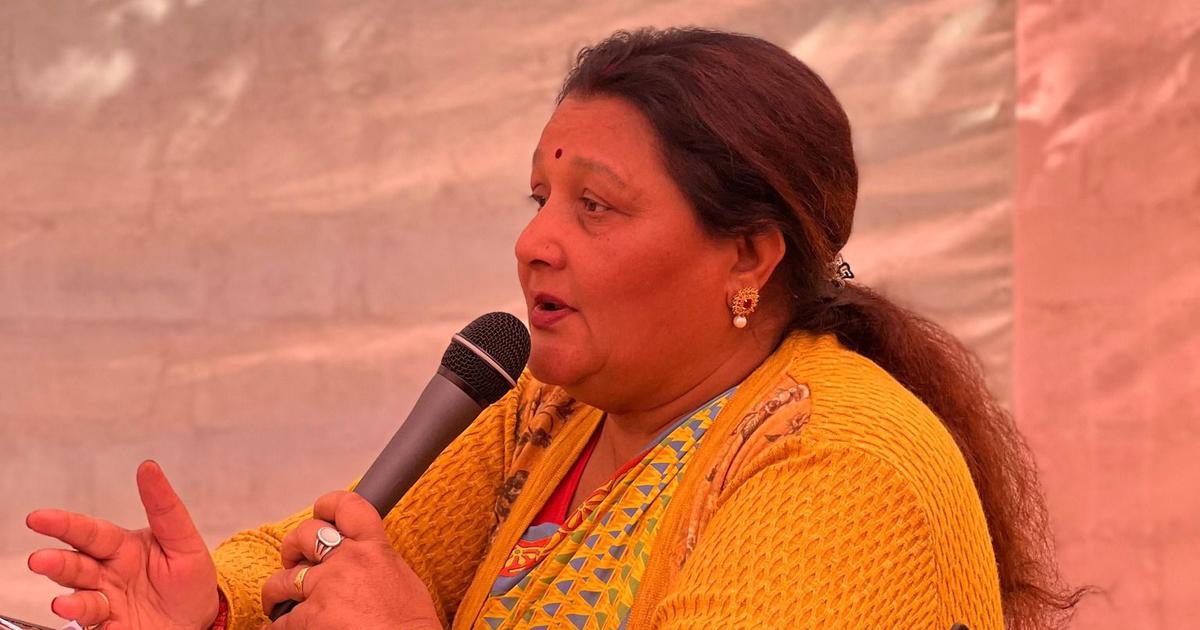
Bengaluru: Alishan Jafri, 24, has been documenting anti-Muslim violence since 2017, around the time he saw a video of Junaid Khan, a teenager, being stabbed eight times on a train. When he discussed this with a friend, the latter argued that Junaid’s murder wasn’t a hate crime. Jafri didn’t know how to respond then. By the time he found his answer at a mahapanchayat in Haryana in 2021, where Junaid’s killer boasted about killing him to a crowd of thousands of Hindus, that friend was no longer a friend.
Jafri first watched hate speech videos as a teenager in 2013, in the run-up to the general election that propelled Narendra Modi from Gujarat chief minister to the country’s prime minister. Now, in Modi’s second term, Muslim teenagers, who should be enjoying their youth, help Jafri, alerting him to the latest instances of Islamophobia and hate-mongering on the ground and on prime time television.
The independent journalist, along with colleague Naomi Barton, runs The Wire’s Heartland Hate Watch initiative to track hate against religious minorities. Jafri’s passion, one imposed on him by an India where there are calls for the genocide of Muslims (“if 100 of us are ready to kill two million of them”), and spiralling hate speech and attacks against Muslims and Christians (here, here, here, here, here) requires him to track every day hate and violence, by watching as many as a dozen videos a week and closely monitoring the universe of hate on social media platforms. “It makes you sick sometimes and you need to take a break…However, we don’t have the option to give up,” he told Article 14.
Jafri’s work—and his Twitter timeline—is a living record of the rising violence against Indian Muslims. “I am here to tell my children what India looked like to its Muslims in 2021. In that sense, we are documenting history for the next generation,” he said. The banner image on his Twitter account is a weary couplet from poet Rahat Indori, ‘Toot rahi hai mujh mein har din ik masjid, Iss bastee mein roz December aata hai.’ In my heart a mosque is demolished every day, In this land it’s December every day.
Jafri’s glad that the work of those like him have at least made people acknowledge that the hate against Muslims is perpetuated in the ‘mainstream’ and not by the ‘fringe’. Muslims too, have now taken the hate targeted at them more seriously, he said.
Edited excerpts from the interview:
When did you start noticing hate and feel the need to record it in some form?
A person from a demonized community notices hate as soon as they become conscious. Like most young Muslim boys, I became conscious of it in my teenage years. I think it started in school around 2014 when my upper caste Hindu friends were excited about Prime Minister Narendra Modi’s acche din campaign. I did not share that optimism. And with time my anxiety around my name and identity grew.
I literally don’t remember when I started doing what I do. My earliest memory of watching or recording a hate speech is a speech by Sadhvi Saraswati eight years ago. No young person deserves to do what many of us young Muslims have been forced to do: bear witness to what seems like an an impending genocide.
How has the nature and scope of Indian Islamophobia changed since Modi’s Bharatiya Janata Party (BJP) came to power in 2014?
First they came for our lifestyle, then our livelihoods, and now our right to life itself.
From attacks on eating habits in 2014, to rampant lynchings, crippling civil rights, constant demonization on electronic and TV media, to unjust and draconian laws, to seggregation, to attacks on livelihoods after being boycotted for ‘Corona-jihad,’ and now the mob wants the right to kill us.
For upper caste dreamers who fell for acche din, it is just about inflation and how expensive petrol is today, but Muslims have lost their belongingness to this country during this time.
It is a relentless, everyday attack now. We have been reduced to the role of post-hate commentators. Thankfully, that’s changing now and some fresh resistance is coming up through long-running protests, fresh and energetic media coverage by a new crop of journalists, both Muslim and non-Muslim, who don’t want to look away and call this violence ‘fringe’ or a ‘distraction’.
You were a teenager in 2014. Do you get a chance to interact with Muslim teenagers these days? What’s going on in their head?
I meet a lot of Muslim teenagers these days. I talk to them all the time. They are my eyes and ears on the ground. Post 2014, Muslims teenagers have matured so rapidly. They don’t grow in years anymore. They grow in decades. Some want to flee India since they don’t see a future here and some want to stay here. I judge neither.
The sentiment among the new generation of young Muslims going abroad or staying in India is perhaps very different from the previous one. They actively resist and create awareness about anti-Muslim hate and violence in the spaces where they one talked about Ganga Jamuni tehzeeb.
They want equality, accountability and justice.
In the years since 2014, what do you say are two or three key flash points that changed the way you think?
It is difficult to point out particular instances given the crazy amount of good and evil I have witnessed in the last six-seven years. Every lynching fills you with rage. A part of me died with Junaid and Faizan.
The national anthem always gave me goosebumps. But when I saw Faizan and his friends being murdered after the police forced them to sing the national anthem, I stopped getting those goosebumps. Every time, I hear the national anthem I am reminded of Faizan, his innocent blood, his shattered family and the murderers in uniform who continue to remain untouched by the law, perhaps testing my patriotism in a lock-up.
I have loved this country so much but it did not love my brothers Junaid and Faizan, when they needed it, so now I don’t believe in love without reciprocation anymore. Also, why should I prove my love to this country? Why can’t India prove that it loves me?
Moreover, I think that the CAA protests (against the Citizenship Amendment Act, 2019) have made Muslims more confident. The protests connected sharp and intelligent people, especially Muslims, whose incisive takes make the erstwhile opinion leaders of the community look shallow.
How did Junaid’s murder affect you?
Junaid’s murder was very personal for me. Had he been alive, he’d be a little younger than me. Four years back, a good friend had justified his murder. He asked me to prove that it was a hate crime. I had no answer. When I broke the story in June 2021 about Haryana’s anti-Muslim mahapanchayat in which Junaid’s killer boasted on camera about killing him to a crowd of thousands of Hindus, I had the answer to the question my friend asked 4 years ago. But he is not my friend anymore.
What bothers you about older, liberal Muslims such as Naseeruddin Shah and Javed Akhtar?
They don’t react when Muslims need them. They’ll readily school us on the Taliban but will go quiet on daily hate crimes against Muslims. Older liberal Muslim voices who claim to be atheists and yet speak on behalf of Muslims all the time, are a part of the problem since they are disconnected from the community and would be never able to communicate our plight to Hindus with honesty and without monkey balancing.
In 2016, Javed Akhtar indirectly equated Asaduddin Owaisi with the lynch mobs for refusing to say Bharat Mata Ki Jai. In 2021, young Muslims would not let him get away with this opinion.
Regular atheists who stand against religious bigotry and terrorism would not hold Ganga Jal in their hands to take an oath against religious terror but Javed Sahab is different. He believes in the concept of Bharat Mata. He would tell you that a school or a hospital should be built on the 5 acres alloted to Muslims after the Babri Masjid was criminally erased. But when you point out that his argument rationalizes mobs demolishing religious places and can be used to suggest that all fascist mobs can desecrate as many mosques as they want since that would give Muslims more schools and hospitals, he is silent.
Recently, Naseer Sahab talked about how Indian Muslims are not as extremist as Muslims all over the world. This idea of Indian Muslims being less radical comes from the perverted imagination that we have been culturally domesticated by the Hindu majority. And I disagree with him very strongly. Tell me, are Pakistani Hindus or Bangladeshi Hindus not more peaceful than Indian Hindus since they don’t lynch Muslims there? Minorities by definition, whether in India or elsewhere, are more peaceful than the majority.
Such Muslims create this idea of the palatable Muslim even as they themselves are now unacceptable traitors to the majoritarian mob.
How have Indian Muslims reacted to these past years of unrelenting Islamophobia?
With dignity. With grace. With patience. With a will to not take this hate and violence lying down. They look to the political opposition and the majority community to stand up but they don’t wait for them to break their silence anymore. It is incredible that Indian Muslims have refused to reply to hate with hate. However, they now neither take abuse from the majority nor do they ignore or agree with those who want to ignore the supposed ‘fringe’.
I used to see Muslims trying to fit in despite insults. They don’t do that anymore. For every “Go to Pakistan” jibe there is a “tere baap ka Hindustan thodi hai”. That’s great.
A sizable section of young Muslims have finally managed to let go of the vicarious guilt of Partition that their parents and grandparents carry. They assert their Indian identity with no qualifiers set by the majoritarian certificate distributors of patriotism. Sooner or later, this is going to be the sentiment of the entire community.
Have the media consumption patterns of Indian Muslims changed?
Why would Muslims watch Suresh Chavhanke or Arnab Goswami? Soon after the anti-Muslim debates started on TV channels, the Muslim middle class took refugee in videos of YouTubers. The good thing is that the expectations of the Muslim audience is rapidly growing. They don’t even spare these YouTubers when they downplay anti-Muslim violence. A new generation of Muslim mediapersons and portals like Mr Reaction Wala, the Hindustan Gazzette, Clarion India, and Maktoob Media have also made a space for itself on Muslim phones.
They want to know about their persecution. They don’t call it a distraction. Now, Dalits have their Meena Kotwals and Muslims, their Mohammad Zubairs. Others need to learn from these icons going down in history, how to resist and relentlessly document.
What impact are you hoping your work will have?
The kind of work that many of my friends and I have been doing in the last 3-4 years has changed the terms of the debate on majoritarian violence. We don’t want schooling from elite upper caste progressive Hindus that our murders are distractions, that covering our humiliation would benefit our killers and that we should wait for everyone to realise that this madness is eating us hollow. I hope that my work inspires young journalists, both Muslim and non Muslim, to not look away when Christians, Dalits and Muslims get violated in India.
Each week, we go through over a dozen videos. They aren’t all acts of physical violation of minorities. It makes you sick sometimes and you need to take a break. I mean, one can’t just watch these gory films threatening our existence all the time–there are limits to what you can view as a human being. However, we don’t have the option to give up.
Some well-intentioned folks encourage me not to cover the violence against Muslims because they are concerned for my safety. They encourage me to disregard these acts of violence because they believe that by spreading these stories, the BJP and the right wing can propagate their message and goal. They say these are fringe acts, but that is a lie. And it’s not my job as a journalist to do so.
I am here to tell my children what India looked like to its Muslims in 2021. In that sense, we are documenting history for the next generation of Indians.
Where do you see hope?
I see hope in the new opinionated middle class of young Muslims, Dalits and Hindus. We now have thousands and thousands of people who despise fake parallels, who are articulate, intelligent and sensitive, who want to be informed, who want justice and not revenge.
They have now forced the liberal alternative media to not look away. They have succeeded in changing their vocabulary which rationalises this violence and makes it look fringe. I see hope in my non-Muslim professors, friends and mentors who unconditionally hear me out when I am hurt and angry. I see hope in my non-Muslim editors who are fighting the good fight and enabling reporters like me to do what we do. I see hope in that old Hindu vegetable vendor Ramji who looked the Jai Shri Ram chanting mob in the eye and protected his Muslim colleague while bearing physical and economic harm.
Those calling for our genocide know that it’s impossible to kill 200 million people, they only want to decimate us to second class citizens and break our will to strive for justice and equality.
That Muslims have refused to give this satisfaction to them, is the hope.






